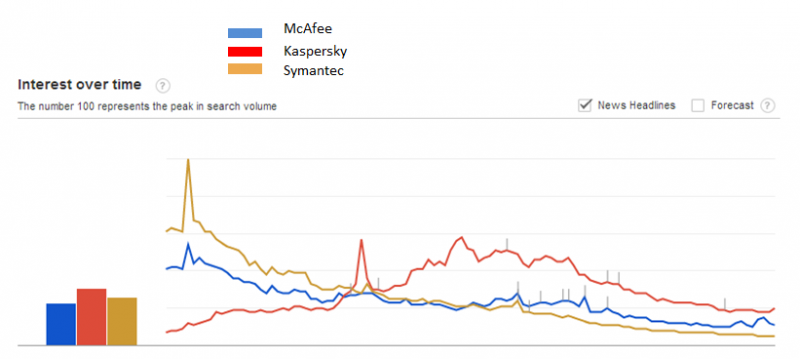Kaspersky: A fast growing company that is seeing challenges for the first time
Last week I flew to Puerto Rico to attend Kaspersky’s industry analyst summit (IAS). This is the second year that Kapersky held a global analyst summit. The event is co-located with their security analyst summit (SAS), which is turning into a mini black hat event with attendance from many premier security researchers in the industry. Unfortunately, I only had time for IAS this year.
Kaspersky is an interesting company. In the last 10 years, they came out of nowhere, built a global brand, established their founder Eugene Kaspersky as a cybercrime-fighting celebrity in popular media (see the Vanity Fair and Wired articles on Kaspersky, and the Formula One sponsorship), and at the same time, grew a tremendous business.
As Kaspersky’s CMO, Alex Erofeev, got on stage talking about how the Kaspersky brand, in many parts of the world, is now the third most well-known AV brand behind Symantec and McAfee. I did a bit of Googling. Look what the Google trends graph below shows (search volume from 2004 to 2013) — not only the global search volume for “Kaspersky” has increased over the years, it has surpassed “Symantec” and “McAfee”! This is no small achievement for a company that, until two years ago, had no formal B2B marketing function.

One of the things about Kaspersky we hear all the time is that users like their technology. Their net promoter score is high, especially among tech savvy users. There is no accident that the company’s business grew 60x in the last 10 years. Forrester recently conducted a Wave evaluation of enterprise endpoint security products, and Kaspersky was positioned as one of the “leaders”. (For access to the Wave report, click here)
But Kaspersky, like other AV vendors, is seeing challenges in the market. While their B2B business is growing, the B2C business is going through some changes. The consumer retail market is shrinking, taking with it revenues that consumers used to spend with retailers like BestBuy and CompUSA (remember CompUSA?) The online retail market is growing, but not enough to compensate. Although Kaspersky is one of the early movers in the mobile AV space, users don’t yet care enough to spend money on mobile AV.
It’s clear that there has to be new ways to reach consumers. Consumers are becoming increasingly mobile, increasingly more connected and digital. However, their needs for security and privacy are changing – the mobile users are not as concerned about viruses and malware as their PC counterparts. At the same time, services such as personal identity management and personal trust management are just beginning to catch on in the consumer space. The market is nascent, but it has huge growth potentials. While it is important to find new ways to reach mobile consumers to sell AV products, security vendors will do well considering innovations and opportunities in these new markets that are outside of basic AV.
Kaspersky is working on something interesting with Qualcomm. Qualcomm’s Asaf Ashkenazi, who was on the mobile security panel, delivered one of the most interesting technical talks at IAS. He talked about Qualcomm’s SecureMSM, a chip-based security technology built on ARM’s TrustZone. SecureMSM allows mobile apps to run in a “secure mode”, which means with tamper-resistant and trusted storage. On the record, Qualcomm and Kaspersky are working on developing Kaspersky’s mobile AV functions as a secure app for SecureMSM. But both sides are tight-lipped about what they have planned beyond that. Based on bits and pieces of conversations at the event, I suspect other projects are in the works, which could be exciting for Kaspersky.
Even though most of the presentations at IAS lacked technical depth, the company provided scanty details on what they are working on next, and the founder, Eugene Kaspersky, phoned in his speech, the Kaspersky guys are great hosts; they put on a good party and I got to sharpen my rusty salsa skills on the dance floor :-).
The security market is changing. Traditional security business must change as a result. It will be interesting to see whether and how Kaspersky, the new kid on the block, will adapt to meet the new challenges and grasp new opportunities. As for me, I am definitely headed to SAS next year.